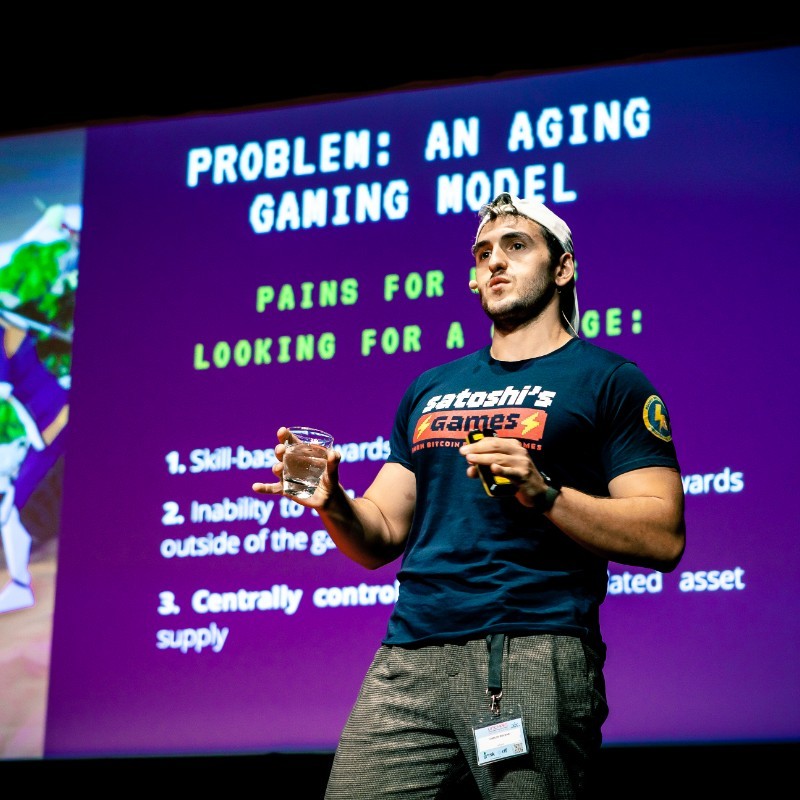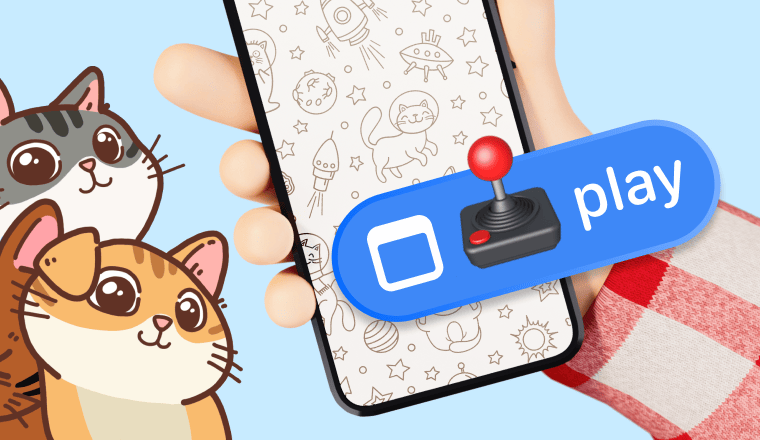Welcome to the August edition of BlockchainGamer.biz’s regular Mavens group. If you’d also like to join the discussion, please contact [email protected]
Do you think the current growth of games on TON is sustainable long-term?
Mike Levine – Founder, Mystic Moose

It’s too early to determine if TON games will be sustainable in the long term, but early signs lead me to be skeptical.
Currently, the platform is booming with hypercasual games that promise tokens to players. However, it is widely understood the majority of these players are in fact bots. Platform supporters state that even if 90% of 100 million players are bots, there are still 10 million real players. Yet, they overlook the negative impact bots can have on the gaming ecosystem, the most obvious being taking rewards away from real players.
For TON games to become sustainable, developers need to create deeper, richer games with stronger engagement loops that attract players who enjoy the game for its own sake. As seen with Axie and other web3 games, economies based solely on earning cannot succeed long term. There must be a balance between players willing to pay for in-game items and those who are there just to earn.
By focusing on developing quality games that offer genuine enjoyment and robust player engagement, TON games have the potential to build a thriving and sustainable ecosystem. We will see what the bots think if that day ever comes.
Tony Pearce – Co-founder, Reality+

It will depend on developer interest and new funding for continued technical investment. TON seems to have a great community of gamers but as we’ve seen in the past these communities can move to the next big thing/chain very quickly so TON blockchain must continue to support developers and provide resources and incentives.
TON must also continue to innovate to differentiate itself from other blockchain platforms like Ethereum, Solana, Hedera or Polygon but having a shared connection through Telegram certainly helps.
Sam Barberie – Head of strategy and partnerships, Horizon Blockchain Games

Games on Telegram present an interesting opportunity that delves into well-worn territory: social games. First, I think it’s vital that we separate Telegram-based games from TON. TON is a non-EVM blockchain that is not a prerequisite for launching a game on Telegram. Games on Telegram are viable for all.
Now for the fun stuff: Telegram games are simply the Facebook games of today, and that’s a good thing. Rewind about 15 years, when developers recognized the distribution benefits of launching a game on a platform that had nearly one billion users, and whose networking mechanics could be leveraged by games to enable players to loop in friends and family, creating a powerful user acquisition flow. Web3 developers see Telegram as a similar destination.
Particularly in the current moment, where the traditional game and app stores are less accessible to some web3 games, Telegram has an existing audience who are there for other primary reasons, the potential for network effects, and a relatively open playing field that isn’t yet dominated by a top-heavy cadre of Supercells or Scopelys (just like the early days of Facebook).
At the same time, I want to caution against hype. Targeting users on Telegram is near impossible, though its app store launch may help. Telegram games also gained a lot of attention through heavily botted experiences, with few – if any – sustainable, human-played games to date. Both of these are challenges that early Facebook games did not face. And, like everything in web3 game development, the rules still apply that developers need to focus on end-to-end, safe, and smooth player experiences.
That said, I see Telegram games as a valuable option for devs that fill a time-based need while iOS and Android get more comfortable with web3 titles, and where game makers can make use of a less crowded field and some potentially unique mechanics.
Quinn Kwon – Head of web3 strategy, Delabs Games

At Delabs Games, we’re very optimistic about the future of Telegram games. We quickly moved to launch GIGACHADBAT on Telegram because we recognized the significant potential in this space.
From our experience, we know that games on chat apps can experience tremendous growth. For instance, our parent company, 4:33, successfully navigated the entire cycle with Kakao, South Korea’s leading chat app. We were the top game publisher on Kakao.
Chat apps have inherent advantages in terms of marketing, virality, and accessibility. Telegram, in particular, stands out with its seamless integration of web3 elements, such as wallets and tokens, directly within the app.
So yes, we are confident in the long-term growth of games on Telegram. We believe that what we’re seeing now is just the beginning, with the potential for more sophisticated and complex game structures in the future.
Tomer Pascal – Co-founder, OwnPlay

I’m quite skeptical of the current state of Telegram-based gaming experiences. Many of these games have flimsy foundations that won’t likely support long-term growth. These “meme games” are driven more by hype and speculation rather than real substance or sustainable gameplay. That means the incentives are skewed more towards narrative storytelling to the community of players, rather than organic interest in gameplay and the game itself.
These meme games will remain niche, as I don’t see there being much room in the market.
I’d much rather focus my efforts on developing crypto gaming experiences with real staying power – not just quick-hit, incentivized diversions. I believe there are more sustainable, meaningful ways for us to engage players in the crypto gaming space – ways that combine fun games with proper incentives built less on token speculation and more on actual gameplay.
Carlos Roldan – CEO, Elixir Games

The growth of TON/Telegram games is something undeniable, it offers a closeness to users which is very positive and generates a really interesting user acquisition. It is also good to comment on how all these projects are at the entrance to games that offer a user experience focused on the long term, with a sophisticated development and which are sustainable.
Integrating features into Telegram such as truly accessible games for users is a very positive step forward, not everyone has the facilities and access to be able to play triple A games and this allows them to stay in the industry without needing the latest hardware. These integrations can serve as a good addition to the existing ecosystem for true gamers, while also providing an excellent avenue for new user engagement. However, this trend should serve as a stepping stone rather than the ultimate goal.
Developers must continue to focus on creating experiences for their audiences. Games must always have a focus on fun, focusing on the user experience as entertainment or a method of disconnection rather than a profit calculator with incentives. Speculation, as has been demonstrated, is not acceptable in games and projects that really want to make a place in the industry in the long term.
Russell Bennett – CEO, Metacade

You have to respect TON’s product fit and market positioning. I think it’s brilliant. But in terms of the growth of the TON network, from a financial point of view and due to the size of it there could potentially be no more than a 2x left in it. However I think the long-term growth will be seen in economy growth.
I think what it has done is encourage a number of projects.
One of our clients, Shockwaves, has just launched their first Telegram game, and it’s very good, far better than what we’re seeing at the moment. The main tranche of games which have hit Telegram are effectively farming activities. So people are literally going into an app and tapping, which is mind blowing to me. But if it works, it works. If hyper-casual games continue to hit Telegram, and it allows tokens to be used then I think we would definitely utilize Telegram for future games in the pipeline for Metacade.
Games being integrated into Telegram is where we’ll see explosive growth. I think TON are going after the super-app philosophy. An app that does all – investing, gaming, viewing – and I think people fully expect to be living within one application in the not too distant future, probably 10 to 20 years. I think TON and Telegram probably have a good opportunity of completely cornering that market.
Alexander Goldybin – Founder and chairman, iLogos

TON’s game growth is exciting but sustainability depends on:
- Engaging gameplay: Games must be fun and keep players interested.
- Strong ecosystem: A healthy developer community, tools, and player engagement are crucial.
- Long-term vision: Games need a plan for future updates and community building.
The jury’s still out on TON’s long-term sustainability, but the current growth is certainly a positive sign. Let’s see if these games can deliver the engaging experiences and long-term commitment needed to thrive.
As always, players will ultimately decide the fate of TON’s gaming scene.
Christina Macedo – CEO, READYgg

There’s undeniable potential in TON’s integration with Telegram. It’s exactly what we need to push gaming content to mobile users globally, which is in line with PLAY’s mission to democratize web3 gaming. Not only does it broaden access, it also changes how we think about distributing and accessing games.
But the games that are currently available on TON remind me a lot of the very early web3 games. Most don’t have the mechanics and storytelling that draw players in and, more importantly, retain them. Many of them aren’t on-chain either.
At PLAY, we’re looking to bring our advanced technology to TON to deepen player engagement. We’re talking about enabling MMOs, PvP, and other community-centric games that can thrive in a social platform like Telegram.
In short, I believe the growth could be sustainable – if the games evolve significantly. We need to see blockchain being leveraged to its potential, with real integration, richer game dynamics, and an improved discovery mechanism. If TON can grow along these lines, it could become a mainstay platform for web3 gaming.

